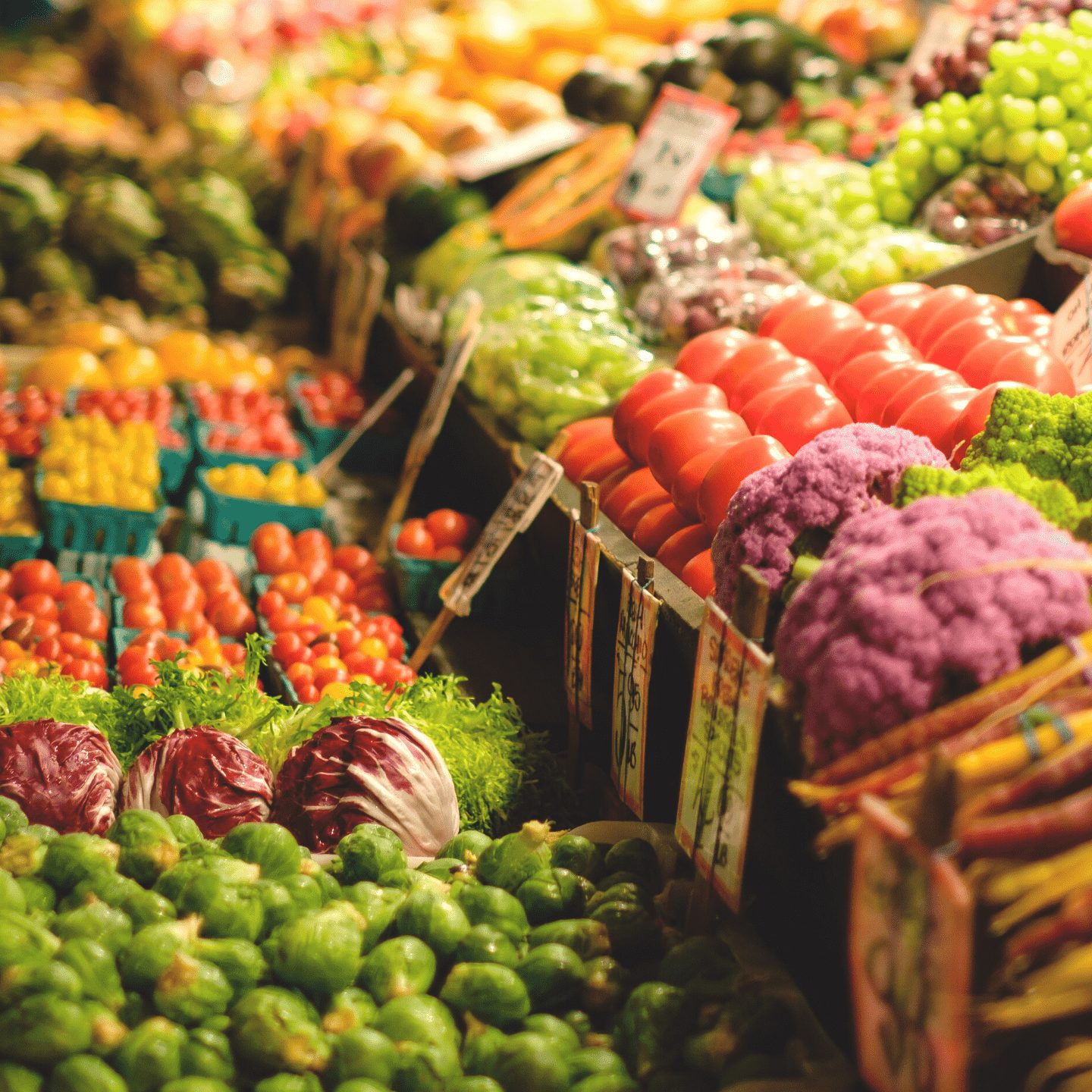In this article, we’ll cover what eating plant-based means, how it’s different from eating vegan, health benefits, and what to do if you want to start eating plant-based.

Eating plant-based means that you mostly eat foods that come from plants. These are foods like fruits, vegetables, nuts, legumes, seeds and whole grains.
Following a plant-based diet is different from being vegan or vegetarian because you still eat some animal products (meat, dairy, etc.). These animal products are usually in smaller portions, unprocessed, and organic.
The term ‘plant-based’ is often used interchangeably with ‘vegan.’ Here’s a little more information on the difference between the two:
Is a Plant-Based Diet The Same as a Vegan Diet?
Eating plant-based is not the same as eating vegan or vegetarian. A plant-based diet focuses on eating mostly plants but also some animal products. It’s ‘plant forward,’ meaning that plants are the focus of each meal, rather than meat or dairy.
‘Plant-based’ as a term has gained popularity relatively recently and some people do interpret it to mean the same thing as vegan.
While vegans also follow a plant-based, plant-forward diet, the difference is that they never eat animal products.
Even though animal products are part of a plant-based diet, they are often in small portions and high quality (unprocessed, organic). Proportionally, much more plants than animal products are eaten.
What Are The Health Benefits of Eating Plant Based?
Plants are high in fiber, which has a whole range of health benefits. Fiber is good for your gut and helps reduce inflammation, which leads to many of the most common and chronic illnesses today.
For example, plant-based diets have been linked to reduced inflammation in this recent study on Rheumatoid Arthritis.
Specific Examples of Health Benefits
If you’re interested in reading more about the health benefits of eating plant-based, here’s an article that lists them in depth. This talks about potential benefits that a plant-based diet can have on the following: weight loss, heart disease, cancer, cognitive decline and diabetes.
Important Note: Not All Plant-Based Meals Are Created Equal
It’s worth noting that one of the biggest benefits of eating plant-based is consuming lots of fiber. Fiber is good for your gut and helps reduce inflammation, along with many other benefits. Fiber is found in plants but is broken down as plants are cooked or processed.
The most health benefits from eating plant-based come from eating unprocessed, whole foods rather than processed ones.
Baked Potato vs. Potato Chip
A simple example of this is eating a baked potato vs. eating a potato chip. The potato chip is technically plant-based, but its nutritional value is much lower than eating a potato that you buy raw and cook yourself.
For a well-balanced, nutritious plant-based diet it’s important to incorporate plenty of unprocessed plant foods.
Following this concept further, some people also eat only whole food and plant based. This is called a ‘whole food plant-based diet.’ This way of eating also cuts out oil in addition to processed foods.
How to Get Started Eating Plant-Based
It’s important to note that there’s no one-size-fits-all, perfect diet for everyone. Everyone is different, and despite the 100+ diet theories that exist today, none is the perfect fit for everyone (that’s why there are so many)!
As with any way of eating, if you choose to start eating plant-based, listen to your body and pay attention to how certain foods make you feel. Seek to eat a balance of food so that your body is getting proper nutrition.
If going plant-based feels daunting, start by simply introducing more plants into your diet. As your meals fill up with plants, other foods will naturally be crowded out. Start by adding one or two new plant-based foods (a vegetable, fruit or whole grain) and experiment with how you like to eat it.
Here’s a few of our most popular plant-based recipes to get you started:

Leave a Reply